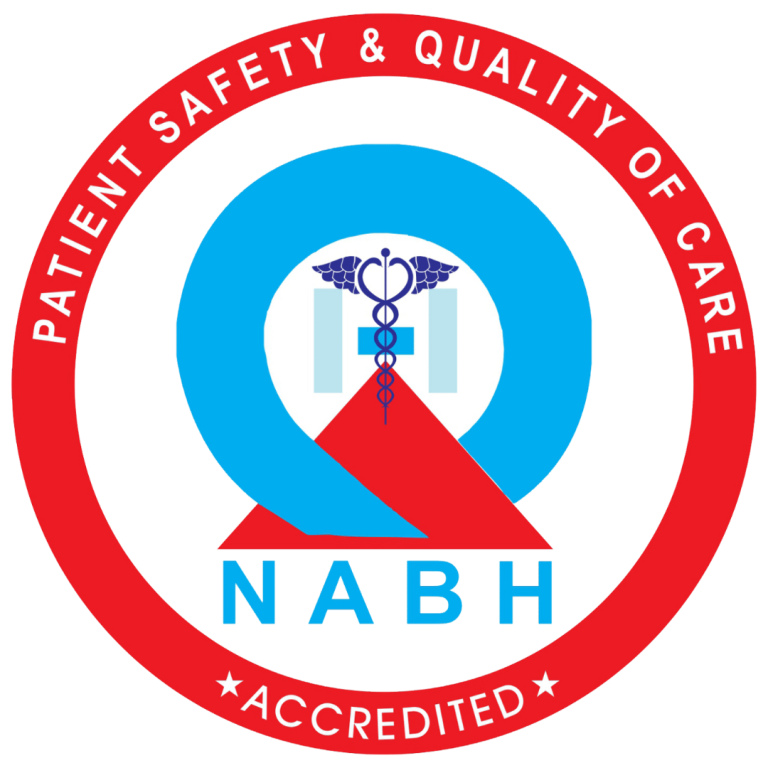Brain and Spine Care Hospital
The human brain and spine form the body’s central command — controlling movement, thought, memory, and balance. Even a minor injury or disorder in these areas can impact daily life in unimaginable ways. That’s where a Brain and Spine Care Hospital become essential — offering advanced diagnosis, treatment, and rehabilitation for neurological and spinal conditions with the latest technology and expert care.
Whether it’s a sudden stroke, back pain, or a complex neurosurgical case, specialized hospitals dedicated to brain and spine care ensure timely, accurate, and compassionate treatment for every patient.
Understanding the Importance of Brain and Back Health
Your brain and spinal cord work together as the body’s communication system. The brain sends signals through the spine to control your movements, sensations, and even your emotions. Any damage to this system can cause major functional problems such as paralysis, loss of balance, or cognitive issues.
Common brain and spine conditions include:
- Stroke or brain hemorrhage
- Brain and spinal tumors
- Epilepsy and seizure disorders
- Herniated discs and spinal stenosis
- Parkinson’s and movement disorders
- Traumatic brain injuries
- Nerve compression and neuropathic pain
A brain and spine care hospital specializes in managing these critical conditions through a multidisciplinary approach — combining neurology, neurosurgery, orthopedics, and rehabilitation medicine.
What Makes a Brain and Spine Care Hospital Special?
Unlike general hospitals, a specialized brain and spine hospital is designed to provide focused treatment using modern infrastructure and experienced neuro experts. Here’s what sets them apart:
Expert Specialists
Hospitals have a team of highly trained neurologists, neurosurgeons, and spine surgeons who handle complex cases with years of experience and precision.
Advanced Diagnostic Facilities
State-of-the-art tools like MRI, CT scans, EEG, EMG, and angiography enable doctors to identify the root cause quickly and plan personalized treatment.
24×7 Emergency Neuro & Trauma Unit
Immediate care for accidents, head injuries, and strokes ensures better outcomes — because in neurological care, every second matters.
Integrated Treatment Approach
Brain and spine hospitals work collaboratively — neurologists, surgeons, and physiotherapists coordinate to deliver comprehensive care.
Personalized Rehabilitation
Rehabilitation units help patients regain mobility, speech, and independence post-surgery or after major neurological illness.
Key Departments in a Head and Spine Care Hospitals
Every top Brain and Spine Care Hospital runs multiple departments working together for full recovery:
- Neurology Department
Deals with disorders like epilepsy, migraines, multiple sclerosis, and stroke through medications and non-surgical care.
- Neurosurgery Department
Performs delicate brain and spinal surgeries, including tumor removal, trauma care, and endoscopic spine procedures using modern surgical techniques.
- OrthopedicSpine Surgery
Focuses on conditions like slipped discs, scoliosis, and spinal deformities using minimally invasive and robotic-assisted techniques.
- Neuro-RehabilitationCenter
Offers physical, occupational, and speech therapy to improve quality of life after surgery or stroke.
- Pain Management and Physiotherapy
Treats chronic pain, posture problems, and back issues with targeted exercises and therapies.
Common Conditions Treated in Brain and Spine Hospitals
Here are some of the major neurological and spinal problems handled by experts in specialized hospitals:
- Stroke and Brain Clots – Quick treatment reduces brain cell damage and helps in faster recovery.
- Brain Tumors – Managed through microsurgery, radiation therapy, and chemo protocols.
- Spinal Injuries – Restores stability and movement using modern surgical and non-surgical techniques.
- Chronic Back Pain – Treated with physiotherapy, spine injections, or minimally invasive procedures.
- Neurodegenerative Diseases – Parkinson’s and Alzheimer’s require expert monitoring and medication adjustment.
The Role of Technology in Brain and Spine Care
Modern brain and spine hospitals rely heavily on cutting-edge medical technology to improve outcomes and reduce risks.
Some advanced tools include:
- 3D Brain Imaging & MRI Scanners for high-resolution visualization.
- Neuronavigation Systems for precise surgical guidance.
- Intraoperative Monitoring to ensure nerve safety during operations.
- Robotic Spine Surgery for enhanced accuracy and quicker recovery.
- AI-based Diagnostic Tools that detect brain abnormalities early.
With these advancements, treatments are faster, safer, and more effective than ever before.
Rehabilitation: Healing Beyond Surgery
Recovery doesn’t stop after surgery or treatment. The rehabilitation phase helps patients return to their normal routines, both physically and emotionally.
Rehabilitation at a brain and spine care hospital includes:
- Physiotherapy – Strengthens muscles and restores movement.
- Speech Therapy – Helps regain language and communication skills.
- Occupational Therapy – Improves coordination for everyday activities.
- Cognitive Therapy – Boosts memory, attention, and decision-making.
- Psychological Counseling – Addresses emotional well-being and helps patients cope with trauma.
The goal is to restore independence and confidence — ensuring that recovery is not just medical, but holistic.
When Should You Visit a Brain and Spine Care Hospital?
You should never ignore neurological or spinal symptoms. Early diagnosis can prevent irreversible damage. Visit a specialist if you experience:
- Severe or frequent headaches
- Sudden numbness or weakness
- Back or neck pain radiating to limbs
- Difficulty walking or maintaining balance
- Tremors, stiffness, or slow movements
- Vision problems or dizziness
- Unexplained memory loss or confusion
These may be signs of nerve or spinal dysfunction that require immediate expert attention.
How to Choose the Right Brain and Spine Care Hospital
Finding the best hospital can be overwhelming. Here’s how you can make a smart choice:
- Check Doctor Credentials – Ensure the neurosurgeons and neurologists are board-certified.
- Hospital Accreditation – Choose hospitals with NABH or ISO certifications.
- Modern Equipment – Make sure the hospital uses advanced diagnostic and surgical systems.
- Emergency & ICU Support – Neuro-emergencies need quick and round-the-clock care.
- Rehabilitation Services – Post-surgery recovery support is crucial.
- Patient Reviews – Real feedback helps you understand the quality of care
Shape Lifestyle Tips to Protect Brain and Spine Health
Simple lifestyle choices can go a long way in preventing brain and spine problems.
- Maintain Good Posture: Avoid slouching; use ergonomic furniture.
- Stay Active: Regular exercise improves blood flow and flexibility.
- Eat Nutritious Foods: Omega-3s, antioxidants, and leafy greens boost brain function.
- Sleep Well: Rest is essential for nerve repair and memory processing.
- Avoid Stress: Practice yoga, meditation, or hobbies that calm your mind.
- Limit Screen Time: Prolonged device use strains the neck and spine.
Healthy habits today can prevent neurological and spinal complications tomorrow.
The Future of Brain and Spine Care
The future of brain and spine medicine is exciting. From robotic surgeries to regenerative stem cell therapy, modern science is bringing new hope to patients with complex neurological and spinal disorders.
Hospitals are integrating AI-based diagnosis, minimally invasive surgeries, and neuro-navigation systems for higher precision and faster recovery. Telemedicine and digital health tracking are also helping patients get continuous monitoring even after discharge.
Conclusion
A Brain and Spine Care Hospital isn’t just about advanced machines or surgeries — it’s about restoring life, dignity, and movement. These specialized centers combine world-class technology with human compassion to provide complete care for patients suffering from neurological and spinal problems.
Whether you’re dealing with chronic back pain or a critical brain condition, don’t delay — early consultation and the right hospital can make all the difference.
Your health, your recovery, and your future begin with one decision — choosing the right Brain and Spine Care Hospital that treats not just the body, but the person as a whole.
Book an Appointment







